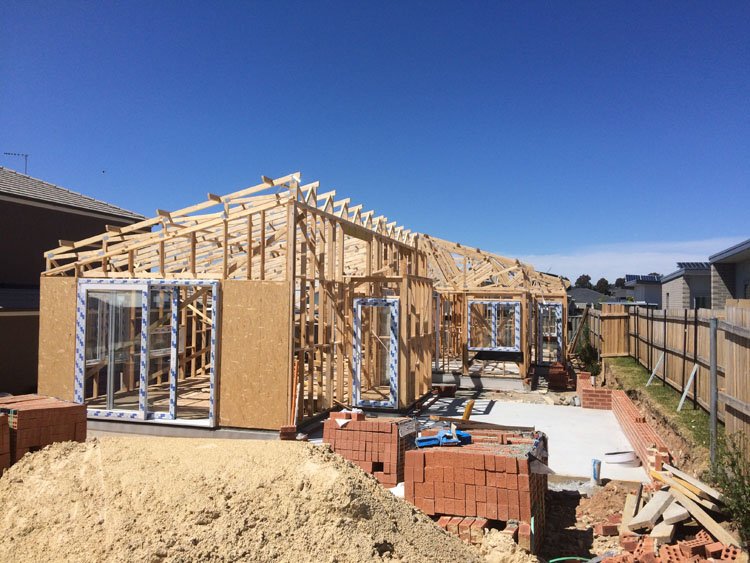The real estate market is hyper-local. Your success often depends on how well you dominate your neighborhood, city, or region — not the whole internet. That’s why real estate SEO isn’t just about general optimization; it’s about local SEO done right.
With more than 46% of all Google searches seeking local information, real estate professionals who master local SEO will secure more leads, drive more traffic, and build stronger reputations in their target markets.
Let’s dive into why local SEO matters, what tactics work in 2025, and how agents and agencies can use it to stay ahead.
What Is Local SEO and Why Does It Matter?
Local SEO is a subset of search engine optimization focused on making your business visible in local search results — especially on Google.
Think of searches like:
-
“Best real estate agent in Scottsdale”
-
“Buy a home in Astoria Queens”
-
“Luxury condos downtown Chicago”
Local searches signal high intent. People searching for these terms are usually ready to take action. That’s why ranking for them is so valuable — and that’s exactly what seo for real estate agents should aim to do.
Google Business Profile Optimization: Your Foundation
Google Business Profile (formerly Google My Business) is a non-negotiable asset for local real estate professionals.
To optimize it:
-
Make sure your Name, Address, and Phone number (NAP) are accurate
-
Choose the right business categories
-
Add high-quality images of properties, your team, and local areas
-
Regularly post updates or listings
-
Encourage reviews and reply to them all
A well-optimized GBP listing can appear in the “Local Pack,” Google Maps, and organic results — giving you visibility even without paid ads.
This is a core strategy any savvy real estate SEO consultant would recommend.
Create Location-Based Landing Pages
One of the best ways to capture local traffic is through targeted pages.
For example:
-
/homes-for-sale-miami-beach
-
/buy-house-uptown-dallas
-
/condos-central-austin
Each of these pages should be optimized with localized copy, relevant keywords, internal links, and nearby listings. Include neighborhood highlights, schools, parks, and more.
This gives you more entry points into search results and builds topical authority. It’s a technique used by every top-tier real estate SEO company.
Use Local Keywords Naturally
You don’t have to stuff your site with city names. You just need to be intentional.
Instead of:
“We are the best real estate agents in Chicago. Our Chicago real estate company serves all of Chicago…”
Try:
“Whether you’re relocating to Lincoln Park or investing in Logan Square, our team helps you navigate the Chicago real estate market with confidence.”
Natural language + relevant locations = stronger SEO and better user experience.
This approach also helps target long-tail real estate SEO keywords that buyers and sellers are actively typing into Google.
Build Citations and Local Backlinks
Citations are mentions of your business on other sites — with your name, address, and phone number. Think Yelp, Realtor.com, Zillow, Chamber of Commerce, etc.
Backlinks from local blogs, newspapers, sponsorships, or events also boost your trustworthiness in Google’s eyes.
These are key ranking factors for local searches — and any legitimate real estate SEO agency should help you build them strategically.
Blogging With Local Intent
Blogging isn’t just for general tips — it’s a secret weapon for local SEO.
Some content ideas:
-
“Top 5 Schools in [City] and What Homes Cost Nearby”
-
“Is [Neighborhood] a Good Investment in 2025?”
-
“Monthly Real Estate Market Report: [City] Edition”
By aligning blog content with local search trends, you attract people who are already interested in that area — and improve your ranking at the same time.
This is where seo real estate marketing really earns its keep.
Reviews Are Your Local Ranking Secret
Google reviews don’t just build trust — they boost rankings.
Make review collection a routine:
-
Ask after a successful closing
-
Include it in your follow-up email
-
Use QR codes at open houses or signage
Make sure your reviews include local references like neighborhoods, streets, or property types. This subtly reinforces your authority for those search queries.
It’s something most agents ignore — but a true real estate SEO expert knows how to leverage it for maximum ROI.
Don’t Ignore Mobile and Voice Search
Most local searches happen on phones or through voice assistants.
So, your site must be:
-
Mobile-responsive
-
Fast-loading
-
Easy to navigate
-
Structured with headers, short paragraphs, and FAQs
Voice search queries tend to be longer and more conversational. Answer them with sections like:
“What’s the best neighborhood to buy in San Antonio for families?”
Your answer format matters — and so does your schema markup.
This level of technical finesse is often handled by top seo services for real estate providers.
Final Thoughts
Local SEO isn’t a one-time checklist — it’s an ongoing strategy.
The agents who commit to it see long-term growth in organic traffic, leads, and sales. Whether you’re solo or running a team, dominating your local area in Google is the most cost-effective way to stay visible.
If you’re ready to fully unlock that visibility, consider working with a team that specializes in real estate SEO services — they’ll help you build a foundation that lasts through every market cycle.

